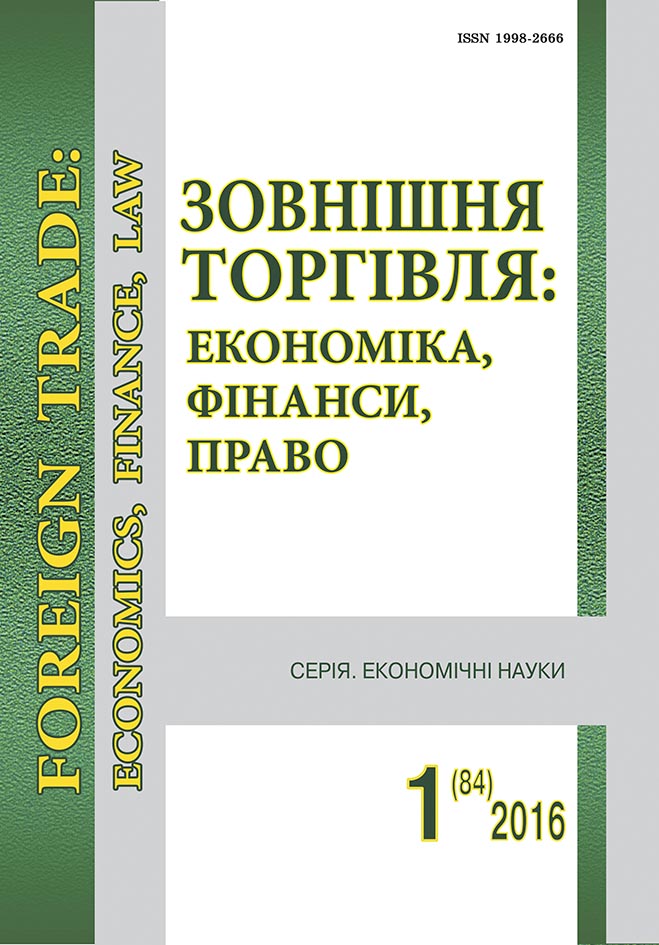Genesis of criminal behavior
Keywords:
criminal behavior, determinants of crime, mechanism of criminal behavior, relationship crime, precriminal, criminal and postcriminalo relationshipAbstract
Background. In the transition from abstract understanding of public relations to the level of specific interpersonal relations it appears that they often are immediate determinants of crime. That is committing a crime against a person is usually preceded by the sequence of interactions that consist of mutual incentives and reactions of the offender and the victim that directly form the mechanism of criminal behavior. Another important factor that affects the mechanism of criminal behavior is the environment, which includes a specific life situation as well. The study of all these circumstances, the author believes, should contribute to developing measures to prevent crimes against the person that makes this topic very relevant.
The aim of this article is to analyze the impact of life situation on the development of individual criminal behavior.
Materials and methods. Findings of the expert survey of police officers (hereinafter – PO) were the materials of the research. Scientific and theoretical basis for studying the problem constituted the study of modern Ukrainian and foreign lawyers and criminologists on issues relating to the topic of the article. Both general and special scientific methods and techniques of knowledge were applied to solve these tasks.
Results. Research of the causal complex of crime indicate a significant impact of the specific life situation on the genesis of criminal behavior. Specific life situation has especially strong impact on impulsive crimes. The author believes that the external environment of individual, its and victim’s personal qualities, specific life situation associated with it and other factors must be considered together with all four stages of the mechanism of criminal behavior: motivation, planning, execution and results. Each stage of the set contains various elements and has certain characteristics. In the mechanism of individual criminal behavior specific life situation may play a role of the conditions as well as causes of crime, but it does not necessarily push people to commit a crime. A person can not commit a crime even in the most difficult situations. In this connection situations are distinguished as motivational indifferent and motivating.
Conclusion. Behavior of the victim and his or her personal qualities make significant impact on the crime situation. Relations between the victim and criminal are essential in the genesis of individual criminal behavior and are part of the environment. They exercise influence on the formation of a criminal motive, behavior during and after the crime. The mechanism model of the criminal behavior of a subject of relationship consists of five units. The author considers it appropriate to supplement the diagram with a postcriminal behavior block because its research has criminological significance, namely, to develop measures to prevent re-offending. Also the model presented above shows that the relationship between the victim and the offender are part of the environment, victim’s personality impacts on each block mechanism of criminal behavior.
References
Alimov S. B. Deformacii v obraze zhizni, obuslovlivajushhie sovershenie nasil'stvennyh prestuplenij / C. B. Alimov — M. : VIIPRMPP, 1985. — 104 s.
Gernet M. N. Social'nye faktory prestupnosti / M. N. Gernet [Elektronnyj resurs]. — Rezhym dostupu : http://www.allpravo.ru/library/doc101p/instrum3470.
Golovkin B. M. Kryminologichni problemy umysnyh vbyvstv i tjazhkyh tilesnyh ushkodzhen', shho vchynjajut'sja u simejno-pobutovij sferi : monogr. / B. M. Golovkin. — H. : PPV «Nove-slovo», 2004. — 252 s.
Zelins'kyj A. F. Kryminologija : navch. posib. / A. F. Zelins'kyj. — X. : Rubikon, 2000. — 240 s.
Zelinskij A. F. Kriminal'naja psihologija / A. F. Zelinskij. — K. : Jurinkom Inter, 1999. — 228 s.
Korjagina A. M. Vplyv vzajemovidnosyn zhertvy ta zlochyncja na vynyknennja, rozvytok ta naslidky zlochynu : dys. … kand. juryd. nauk : spec. 12.00.08 / A. M. Korjagina. — H., 2011. — 233 s.
Kondratjuk L. V. Antropologija prestuplenija (mikrokriminologija) / L. V. Kondratjuk. — M. : Norma, 2001. — 344 s.
Antonjan Ju. M. Rol' konkretnoj zhiznennoj situacii v sovershenii prestuplenija / Ju. M. Antonjan. — M. : Izd-vo Akad. MVD SSSR, 1973. — 71 s.
Nomokonov V. A. Poterpevshij kak jelement situacii sovershenija prestuplenija / V. A. Nomokonov // Poterpevshij ot prestuplenija : tematicheskij sbornik / Otv. red. P. S. Dagel'. — V. : Dal'nevost. gos. un-t, 1974. — S. 160–169.
Alimov S. B. Situacija sovershenija prestuplenija i ejo kriminologicheskoe znachenie : avtoref. diss. … kand. jurid. nauk : spec. 12.00.08 / S. B. Alimov. — M., 1971. — 27 s.
Kudrjavcev V. N. Prichinnost' v kriminologii (O strukture individual'nogo prestupnogo povedenija) / V. N. Kudrjavcev. — M. : Juridicheskaja literatura, 1968. — 176 s.
D'jakov S. V. K voprosu o prichinnosti v mehanizme prestupnogo povedenija / S. V. D'jakov // Voprosy bor'by s prestupnost'ju. — 1986. — Vyp. 45. — S. 23–32.
Antonjan Ju. M. Psihologija prestupnika i rassledovanie prestuplenij / Ju. M. Antonjan, M. I. Enikeev, V. E. Jeminov. — M. : Jurist, 1996. — 334 s.
Bandurka A. M. Juridicheskaja psihologija / A. M. Bandurka, S. P. Bocharova, E. V. Zemljanskaja. — Har'kov, 2001. — 640 s.
Rivman D. V. Viktimologija / D. V. Rivman, V. S. Ustinov. — S.-Pb. : Jurid. centr Press, 2000. — 332 s.
Rivman D. V. Kriminal'naja viktimologija / D. V Rivman. — S.-Pb. : Piter, 2002. — 304 s.
Zelenevskij Ja. Organizacija trudovyh kollektivov. Vvedenie v teoriju organizacii i upravlenija / Ja. Zelenevskij. — M. : Progress, 1971. — 311 s.
Glonti G. Sh. Kriminologicheskaja harakteristika povodov k soversheniju prestuplenij / G. Sh. Glonti // Voprosy bor'by s prestupnost'ju. — 1986 — Vyp. 44. — S. 14–19.
Kuznecova N. F. Kriminologija / N. F. Kuznecova [Pod red. N. F. Kuznecovoj i G. M. Min'kovskogo]. — M. : Izd. MGU, 1994. — 501 s.



